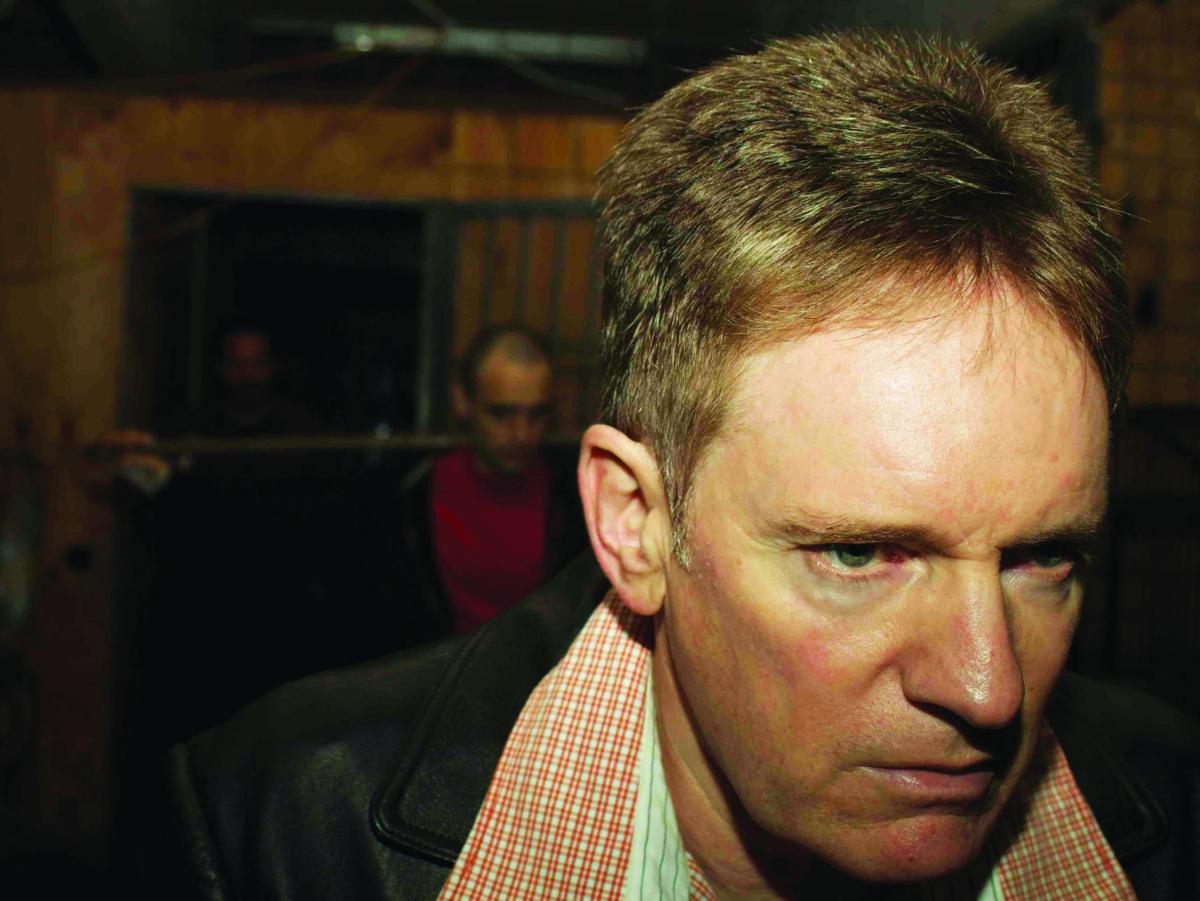You would have to be blind not to notice the current resurgence of interest in David Mamet recently. With Glengarry Glen Ross, coming soon to the Melbourne Theatre Company and American Buffalo just opened at the La Mama Courthouse, both considered to be the pinnacle of Mamet’s masterpieces, it goes to show how timeless both pieces are. Both deal with men under economic stress and trying to cheat their way to the top of the American dream. Given recent economic and political shifts, it’s certainly a good time to bring such plays back onto stage decades after their debuts.
So – 39 years on – how does American Buffalo hold up? The play? Fine. Mamet’s minimalist, profanity-laden poetry of the low-life is still exciting, the clever plot reversals and loyalty shifts – a Mamet staple – still make for great drama. It is easy to see why, in 1975, this was a shock to the system when it first appeared in Chicago.
American Buffalo sees junk shop owner Don, Teach and young Bob collude in Don’s plan to rob a coin collector of his precious loot after Don learns that he sold the man a rare ‘American Buffalo’ coin for a fraction of its worth. As the countdown to the break in continues and the tension mounts, a betrayal is revealed resulting in a shocking display of violence.
As for the production? It’s a little limp and a bit slapdash. Eschewing La Mama Courthouse’s usual raked seating, turning it around and going longways adds a sense of immediacy not normally found in the space (although one thinks this might have been better staged at La Mama).
There is almost entirely no set with only two tables, a prop phone and a sign reading: ‘Don’s Junk’ above the stage, leaving us staring at the uninspiring bare walls. Going longways means actors have to virtually run a marathon in an empty space and somehow pass it off as a small junk shop. As to whether this is a ‘less is more’ choice or simply due to a limited budget one cannot tell but either way, it feels more like we are looking in on a rehearsal, rather than the actual performance. It also neuters the climax, since Teach’s violent trashing of the junk shop is cut entirely since there is no junk shop to trash. It leaves actor Michael Collins giving a powerful performance, but unable to bring the character to his full potential.
Lighting design is minimal to almost non-existent. Matthew Barber’s design simply highlights the stage however without any suggestion of mood or even time or place. It doesn’t allow for the distinct time change in the play (morning and night), killing any sense of continuity.
Then there are the performances. While all the actors are adequate, Alex Cooper, in particular, gives a charismatic and innocent performance as Bob and Nicholas Stribakos (Donny) is a strong presence, bringing a grounded working-class toughness to the role. Unfortunately, much of his articulation becomes swallowed up by the space.
Director Tony Reck seems to have an intellectual understanding of the play but it fails to translate to the stage: actors move without motivation, energy is lack lustre and timing seems to have been neglected entirely, meaning those famous pauses that had Mamet compared to Pinter and Beckett have no effect. As the second act builds up however, the pace quickens and the production begins to breathe more easily.
You could be forgiven for thinking that this is Australian Buffalo as no attempt has been made to work on American accents. It wouldn’t seem to be such a big deal, except that the entire play is written in the American vernacular – complete with distinct rhythms. Performing this play in Australian makes it feel incredibly unnatural and distracting – the musicality of the language is lost. Couldn’t the actors master an American accent? Mamet would be horrified to say the least. This is a resounding disappointment of an otherwise exciting play.
Rating: 2 ½ out of 5 stars
American Buffalo
Writer: David Mamet
Director: Tony Reck
Lighting Designer: Matt Barber
Cast: Nicholas Stribakos, Michael Collins & Alex Cooper
La Mama Courthouse, Drummond St, Carlton
www.lamama.com.au
2 July – 13 July





